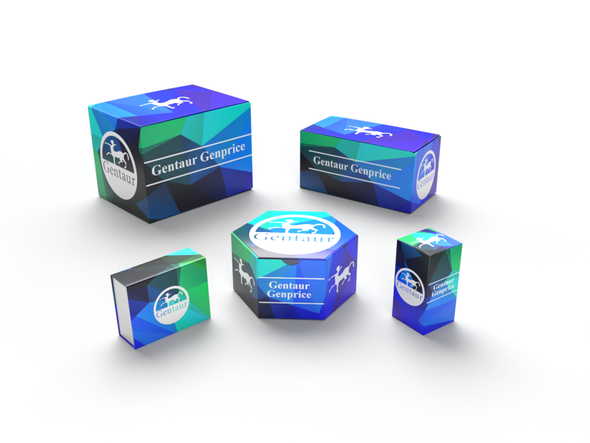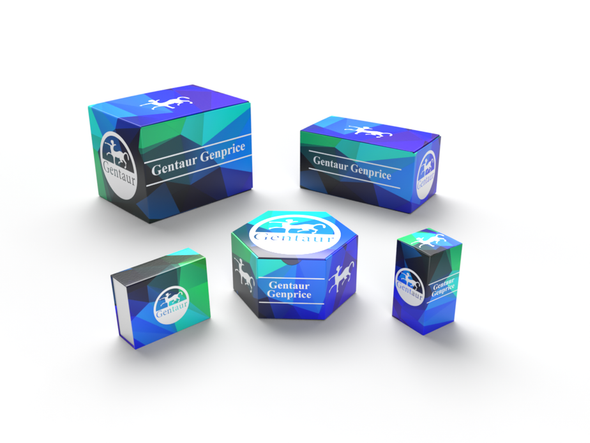Description
Goat Anti-Human FGF-16 Antibody | 102-P125G | Gentaur UK, US & Europe Distribution
Species: Anti-Human
Host / biotech: Goat
Comment: N/A
Label: N/A
Clone / Antibody feature: Goat IgG
Subcategory: Polyclonal Antibody
Category: Antibody
Synonyms: FGF16; FGF-16
Isotype: N/A
Application: ELISA, WB
Detection Range: N/A
Species Reactivity/Cross reactivity: Human
Antigen: Recombinant human FGF-16
Description: Fibroblast growth factor 16 (FGF16) belongs to the large FGF family which has at least 23 members. All FGF family members are heparinbinding growth factors with a core 120 amino acid (aa) FGF domain that allows for a common tertiary structure. FGFs are expressed during embryonic development and in restricted adult tissues. They act on cells of mesodermal and neuroectodermal origin to regulate diverse physiologic functions including angiogenesis, cell growth, pattern formation, embryonic development, metabolic regulation, cell migration, neurotrophic effects and tissue repair. Signaling receptors for FGFs are type I transmembrane receptor tyrosine kinases belonging to the immunoglobulin (Ig) superfamily. Four distinct but related classes of FGF receptors, FGF R1, 2, 3, and 4, exist. Through alternative splicing, multiple isoforms for FGF R1, 2 and 3, with distinct ligand recognition profiles, are also generated. Human FGF16 cDNA predicts a 207 aa precursor protein with one N-linked glycosylation site. FGF16 lacks a typical signal peptide but is efficiently generated by mechanisms other than the classical protein secretion pathway. Among FGF family members, FGF16 is most similar to FGF9, sharing 73% aa sequence homology. Human FGF16 shares 99% and 98.6% aa sequence identity with the mouse and rat FGF16, respectively. In rat embryos, FGF16 message is expressed predominantly in brown adipocytes. In adult animals, it is localized primarily in heart tissue. FGF16 binds to and activates FGF receptor 4. FGF16 induces proliferation of primary adipocytes and oligodendrocytes in vitro and stimulates liver weight increase in vivo. The expression pattern of FGF16 and its effect on adipocyte proliferation suggest a role for this protein on the proliferation of embryonic brown adipose tissue.
Purity Confirmation: N/A
Endotoxin: N/A
Formulation: lyophilized from PBS
Storage Handling Stability: The lyophilized antibody is stable for at least 2 years from date of receipt at -20°C. The reconstituted antibody is stable for at least two weeks at 2-8°C. Frozen aliquots are stable for at least 6 months when stored at -20°C.
Reconstituation: Centrifuge vial prior to opening. Reconstitute in sterile water to a concentration of 0.1-1.0 mg/ml.
Molecular Weight: N/A
Lenght (aa): N/A
Protein Sequence: N/A
NCBI Gene ID: 8823










